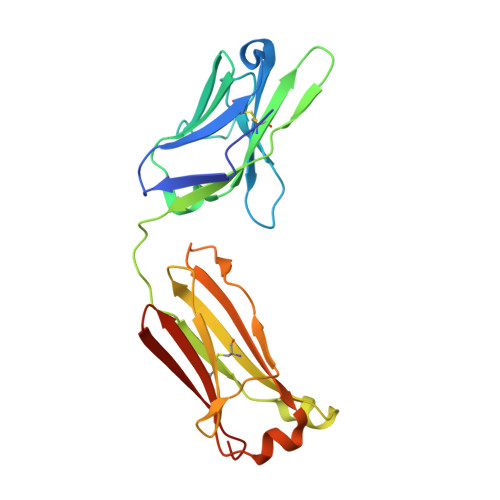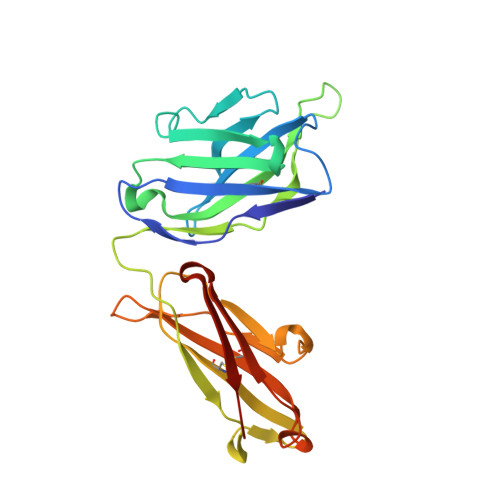Human antibodies that neutralize respiratory droplet transmissible H5N1 influenza viruses.
Thornburg, N.J., Nannemann, D.P., Blum, D.L., Belser, J.A., Tumpey, T.M., Deshpande, S., Fritz, G.A., Sapparapu, G., Krause, J.C., Lee, J.H., Ward, A.B., Lee, D.E., Li, S., Winarski, K.L., Spiller, B.W., Meiler, J., Crowe, J.E.(2013) J Clin Invest 123: 4405-4409
- PubMed: 23999429
- DOI: https://doi.org/10.1172/JCI69377
- Primary Citation of Related Structures:
4GSD - PubMed Abstract:
Recent studies described the experimental adaptation of influenza H5 HAs that confers respiratory droplet transmission (rdt) to influenza virus in ferrets. Acquisition of the ability to transmit via aerosol may lead to the development of a highly pathogenic pandemic H5 virus. Vaccines are predicted to play an important role in H5N1 control should the virus become readily transmissible between humans. We obtained PBMCs from patients who received an A/Vietnam/1203/2004 H5N1 subunit vaccine. Human hybridomas were then generated and characterized. We identified antibodies that bound the HA head domain and recognized both WT and rdt H5 HAs. We used a combination of structural techniques to define a mechanism of antibody recognition of an H5 HA receptor-binding site that neutralized H5N1 influenza viruses and pseudoviruses carrying the HA rdt variants that have mutations near the receptor-binding site. Incorporation or retention of this critical antigenic site should be considered in the design of novel H5 HA immunogens to protect against mammalian-adapted H5N1 mutants.















